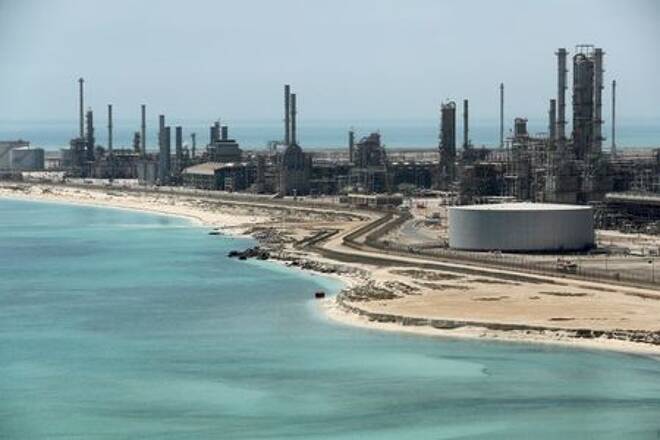Advertisement
Advertisement
Saudi Arabia Re-Enters Full Scale Financial Markets, Aramco $6 billion Sukuk and PIF Infrastructure Fund Stake
Updated: Jun 10, 2021, 16:14 GMT+00:00
The time that only oil prices made Saudi headlines is over since the Crown Prince Mohammed bin Salman took over.
After a slight lull in the market, Saudi companies have again made headlines the last day. The world’s largest oil company Saudi Aramco’s dollar denominated Islamic bond sale (Sukuk) has raised $6 billion, while another Saudi sovereign wealth fund Public Investment Fund (PIF) took a major share in a new Gulf based infrastructure fund. The time that only oil prices made Saudi headlines is over since the Crown Prince Mohammed bin Salman took over.
Saudi Aramco’s financial attractiveness has not been dented lately, even that volatile oil markets and unilateral oil export cuts have put a dent in its profitability at present. With orders of between $33 -55 billion in place, the oil giant has been able to raise $6 billion with a new sukuk offering. The oil giant’s sukuk had a price guidance of under 70 basis points (bps) over US Treasuries (UST) for a 3-year tranche, 90 bps over UST for 5-year, and 125 bpd over UST for a ten-year tranche. On Monday June 7 Aramco’s first US dollar-denominated sukuk was launched. The total sukuk is launched in three tranches.
The sukuk is going to be used to pay for Aramco’s $75 billion in dividends per year, which was offered during the IPO to increase international interest. The oil company is already cutting on its overall spending, even in the upstream operations. To reap additional finances, Aramco has set up at the same time a major program to sell non-core assets. Even that the last months oil revenues have increased substantially, as price levels are again hovering around $70 per barrel, the company is still struggling with its free cash flow, which is short of the $18.75 billion it needs to pay each quarter.
Today Aramco also has appointed Morgan Stanley as lead adviser for the sale of a multi-billion dollar stake in its natural gas pipeline network. At present a deal is being made worth around $12.4 billion, in which investors will be able to hold a minority stake in a new Aramco subsidiary leasing the network. The network is the so-called Aramco’s Master Gas System, linking its production with processing sites throughout the kingdom, holding a total capacity of 9.6 billion cubic feet per day.
At the same time, Saudi SWF PIF has done a capital commitment to the $800 million ASIIP infrastructure fund. PIF will fund up to 20% of the total fund. ASIIP is a joint infrastructure fund between Bahrain based Investcorp and Aberdeen Standard Investments, focusing on infrastructure in the GCC region. The Asian Infrastructure Investment Bank (AIIB) also has committed around $90 million to the fund.
The infrastructure fund targets projects in line with the economic diversification plans of the GCC and MENA region, mainly by investing in sustainable core infrastructure projects. Taking into account ESG and UNSDG issues, ASIIP will focus on solutions in healthcare, education, water, mobility and digital infrastructure. A possible link between the PIF ASIIP option and other Saudi entities is clear, as the PIF is also owner of Aramco and other conglomerates in the region.
This week PIF also made clear that it will not anymore focus on US-EU-Asian markets but increasingly focus on regional opportunities. The coming months more PIF transactions are to be expected as it wants to increase a full-scale regional network to support economic diversification in the region, with Saudi Arabia as the pivotal center. Possible new fund transactions with Abu Dhabi are also in the offing, partly to strengthen the cooperation of both powers.
For a look at all of today’s economic events, check out our economic calendar.
About the Author
Cyril Widdershovenauthor
Dr. Widdershoven is a veteran Energy market expert and holds several advisory positions at various international think-tanks and global Energy firms.
Advertisement
